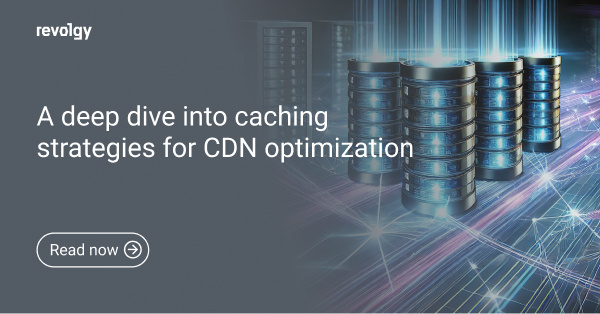AWS, Professional Services, Cloud Platform Services, Security
Why your business needs a CDN (and how to get it right)
Nobody likes a slow website. Whether you’re running an e-commerce store or a global SaaS platform, every second of delay means lost users, lower SEO rankings, and missed conversions. That’s why a Content Delivery Network (CDN) isn’t just nice to have — it’s a must. It keeps your content fast, secure, and accessible across multiple regions, keeping your business running smoothly.
However, choosing and implementing the right CDN solution can be tricky. With so many providers, features, and pricing models, businesses often struggle to figure out which one fits their needs best. This guide will help you understand why CDNs matter, what to look for, and how to find the right solution for you.
What is a CDN?
A CDN is a system that helps make websites and apps load faster for users. It does this by storing copies of website content in multiple locations around the world. When a user visits a website, the CDN delivers the content from a server that is geographically closer to them, reducing the distance the data has to travel and speeding up the loading process.
Why CDNs are essential for modern infrastructure
By caching website assets (such as images, videos, JavaScript, and CSS) at multiple locations worldwide, CDNs significantly reduce the strain on origin servers, lower latency, and improve performance. Instead of every user request traveling long distances, content is served quickly from the nearest available node.
Without a CDN, businesses face challenges such as:
- Slow performance for users in distant locations, leading to frustrated users and higher bounce rates.
- Increased bandwidth costs, as repeated requests put pressure on origin servers.
- Security risks, including DDoS attacks, data interception, and bot traffic.
- Scalability issues make it harder to handle traffic spikes efficiently.
Beyond just speed and security, CDNs also support compliance requirements, improve traffic management, and enable smarter load balancing, making them a critical part of modern digital infrastructure.
How to choose the right CDN for your business
Not all CDNs are created equal. While popular providers such as Cloudflare, Akamai, Fastly, and AWS CloudFront offer similar core features, they differ in terms of performance optimizations, security capabilities, ease of integration, and cost structures.
When selecting a CDN, businesses should consider:
- Global reach and PoP (Point of Presence) distribution to determine latency improvements. The wider the reach, the better the latency improvements.
- Caching flexibility — does it handle both static and dynamic content efficiently?
- Security features like DDoS protection, WAF (Web Application Firewall), and SSL/TLS support help protect data.
- Ease of integration — How well does it work with your existing cloud or on-prem infrastructure?
- Cost management tools to optimize pricing based on geographic distribution and data transfer needs.
Building the right CDN strategy
Choosing the best CDN isn’t just about picking a provider; it’s about defining a strategy that aligns with your specific performance and security needs. Some businesses take a multi-CDN approach, using different providers in various regions for optimal redundancy and performance. Others leverage edge computing capabilities, deploying custom logic at edge locations for tasks like user authentication, content personalization, and real-time A/B testing.
For businesses exploring a CDN migration or new deployment, it’s important to assess their traffic patterns, caching requirements, and security policies to achieve maximum performance and cost efficiency.
If your company is experiencing slow page loads, high bandwidth costs, or security concerns, it might be time to explore the right CDN solution for your needs.
A CDN helps websites and apps run faster, but setting one up or managing it isn’t always easy. Revolgy takes the complexity out of the process, helping businesses get started, optimize performance, and keep costs under control. Contact us for a free consultation.

